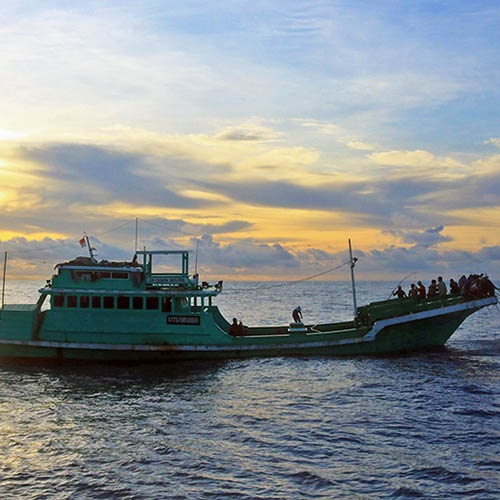We want to make sure that all fisheries which are well-managed and sustainable can become certified, even if they do not have the data required for conventional measures, such as full analytical stock assessments.
Progress so far
Extension of timeline to deliver outcomes
The additional guidance for data limited fisheries is on an extended timeline until the proposed changes to our requirements under Principle 1 have been confirmed. We will then be able to assess the impact of the changes proposed for data-limited fisheries.
Developing our policies
We reviewed the language used in the Standard in relation to the use of data-limited approaches and are identified key areas where dedicated guidance can clarify the interpretation of key terms such as status 'proxies' and 'monitoring' when used with these kinds of fisheries.
We have developed guidance to assist the scoring of a range of fisheries managed with data limited approaches, which will include support for how assessors may interpret outcomes of simulation-testing tools such as the Management Evaluation Risk Assessment (MERA) app, to help determine their scores.
MERA, commissioned by the MSC, has been tested in fisheries in Spain, Mexico, Japan and Indonesia to explore how it may help fisheries in improvement projects design their management procedures so that they are more likely to eventually meet MSC requirements under Principle 1. The tool, and its application in a fishery in Spain, has been evaluated are described in a peer-reviewed research paper published in January 2022.
Improving our standard
It can be difficult to score fisheries that are managed through data-limited approaches against the MSC Fisheries Standard as they lack explicit measures of stock health.
These fisheries can use surrogates or proxies to inform their harvest control rules. This means using different methods to estimate the probabilities required to meet scoring guideposts. We want to make our Standard more accessible to these fisheries.
To ensure a variety of approaches can be used to assess data-limited fisheries against our Standard, we are clarifying the language in the Standard by providing more explicit scoring guidance.
How could the standard change?
We are developing new guidance on assessing data-limited fisheries under Principle 1. This includes the interpretation of outputs from Management Strategy Evaluation which can be conducted with software such as the Management Evaluation and Risk Assessment tool (MERA). MERA is a tool which fisheries can use to test the robustness of their data limited management approaches.
This Data Limited Methods guidance will sit in the newly created MSC Fisheries Toolbox which will contain requirements and guidance for tools that aid the assessment of fisheries.
The Toolbox will house, in first instance, the Risk-Based Framework in addition to new tools, such as the new MSC Benthic Impacts tool and proposed Evidence Requirements Framework with the Data Limited Methods guidance set to be added by 2023. The Toolbox will be separate from the Standard and Process documents, which will give flexibility to improve these tools outside of a fisheries standard review process.
Fisheries Standard 3.0 implementation

MSC Fisheries Standard version 3.0
An overview of the changes made to our Standard.

Fisheries Program Documents
The MSC Fisheries Standard and General Certification Requirements.

.tmb-labelhome.jpg?Status=Master&Culture=en&sfvrsn=39466bd9_3)